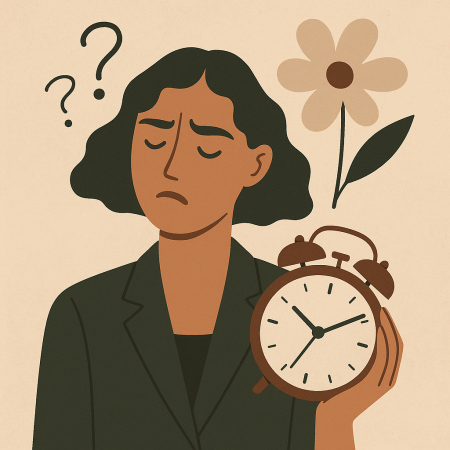Parenting in Bangladesh: How to Support Children With OCD, Intrusive Thoughts, and Difficult Behaviors
Nurturing Resilience: A Guide for Bangladeshi Parents on Supporting Children with OCD and Intrusive Thoughts.



Parenting is never simple. For many Bangladeshi families, the challenge feels even harder when a child shows signs of Obsessive–Compulsive Disorder (OCD), experiences unwanted or “bad” thoughts, or behaves in ways that hurt parents—like scolding their mother, screaming at siblings, throwing tantrums, or demanding constant attention.
These moments are painful and confusing, but research shows that children act this way for reasons. With the right parenting approach and access to professional mental health services in Bangladesh, children can learn to cope, and parents can guide them with confidence.
Understanding OCD and Intrusive Thoughts in Children
OCD often appears in childhood. A child may wash their hands repeatedly, check the same thing again and again, or need everything to be arranged “just right.” Many also experience intrusive thoughts—sudden, unwanted ideas like “What if I say something bad about Allah?” or “What if I hurt my parents?” These thoughts can make children feel guilty or afraid, but they are not a sign that the child is bad. They are simply false alarms created by the brain (American Psychiatric Association, 2022).
The most effective treatment is Cognitive Behavioral Therapy (CBT) with Exposure and Response Prevention (ERP), sometimes combined with safe medication prescribed by a psychiatrist (March & Mulle, 1998; AACAP, 2018). Good news for Bangladeshi parents is that ERP can be done both face-to-face and online through telehealth, making it more accessible even when families cannot easily travel (Steele et al., 2025).
Recent parent-based approaches show that when parents stop repeatedly checking or reassuring and instead provide calm support, children’s OCD symptoms improve more quickly (Veeger et al., 2025).
Why Children Scold, Scream, or Show Anger at Home
Parents often ask, “Why is my child so angry at home, but quiet outside?” Many times, the answer is that children carry hidden stress.
One major factor is bullying. When a child is teased or excluded at school, they feel scared and powerless. Because they don’t know how to express it, they hold it in. At home—where they feel safer—the bottled-up frustration comes out in the form of shouting, scolding, or tantrums. Studies show that children who experience bullying are more likely to show anxiety, anger, and emotional outbursts at home if they do not get proper support (McGrath et al., 2025).
Other reasons include testing boundaries, copying what they see from adults, or having emotions they cannot express in words. If parents argue often or use harsh words, children may learn to do the same (Bandura, 1977). That is why looking beyond the behavior and asking, “What stress might my child be carrying?” is so important.
Parenting Styles: Which One Are You Practicing?
Psychologists have long studied how different parenting styles shape children. Research shows that four main styles exist: authoritarian (strict), authoritative (warm but firm), permissive (too lenient), and neglecting (uninvolved).
Authoritative parenting—balancing warmth with clear rules—produces the best results worldwide. Children raised with this style usually show higher confidence, better self-control, and healthier emotions (Baumrind, 1967; Maccoby & Martin, 1983).
In Bangladesh, studies suggest that most parents already lean toward authoritative parenting, but sometimes boundaries or consistency are missing (Arafat & Khan, 2021). Warmth without boundaries can make children demanding, while strictness without love can make them fearful. The balance of love and structure is the key.
You Are the Role Model: The Power of Modelling
Children copy what they see more than what they hear. If parents shout, insult, or ignore each other, children will do the same. But if parents show respect, apologize when wrong, and solve problems calmly, children learn those skills too (Bandura, 1977).
Research on families with OCD shows that when parents constantly doubt the child or take over tasks, children lose confidence and depend more on compulsions. But when parents show calm belief in their child and encourage independence, children improve faster (McGrath et al., 2025).
As a parent, remember: every time you manage stress calmly, you are teaching your child how to regulate their own emotions.
Do’s and Don’ts for Parents
It helps to keep a few simple rules in mind.
Parents should listen calmly when their child talks about strange or scary thoughts. Normalizing the experience—reminding them that thoughts are not actions—reduces shame (AACAP, 2018). Parents should set clear and consistent boundaries and praise positive behavior. Small rewards and encouragement work better than punishment, because research shows that positive reinforcement shapes behavior more effectively (Skinner, 1953).
On the other hand, parents should not shame or scold a child for “bad” thoughts, since that increases secrecy. They should not give in to tantrums just to keep the peace, because this teaches children that misbehavior works. Comparing children with siblings or calling them “naughty” damages self-esteem. And ignoring persistent issues often makes them worse. Early support—at home and from professionals—leads to better outcomes (Barrett et al., 2005).
Final Words for Bangladeshi Parents
When your child struggles with OCD, intrusive thoughts, bullying, or difficult behavior, it is not a sign of weakness in your family. It is a signal that your child needs guidance, structure, and emotional safety.
The evidence is clear: the best outcomes come when parents practice authoritative parenting, show warmth and consistency, and model respect and calmness at home. Parenting is not about being perfect—it is about being present, patient, and willing to learn.
If you feel overwhelmed, you don’t have to manage alone. At iSELF, we connect families with the best psychologists in Bangladesh and the best psychiatrists in Bangladesh, offering confidential, professional mental health services for children and parents.
Parenting in Bangladesh: How to Support Children With OCD, Intrusive Thoughts, and Difficult Behaviors
Nurturing Resilience: A Guide for Bangladeshi Parents on Supporting Children with OCD and Intrusive Thoughts.
Parenting is never simple. For many Bangladeshi families, the challenge feels even harder when a child shows signs of Obsessive–Compulsive Disorder (OCD), experiences unwanted or “bad” thoughts, or behaves in ways that hurt parents—like scolding their mother, screaming at siblings, throwing tantrums, or demanding constant attention.
These moments are painful and confusing, but research shows that children act this way for reasons. With the right parenting approach and access to professional mental health services in Bangladesh, children can learn to cope, and parents can guide them with confidence.
Understanding OCD and Intrusive Thoughts in Children
OCD often appears in childhood. A child may wash their hands repeatedly, check the same thing again and again, or need everything to be arranged “just right.” Many also experience intrusive thoughts—sudden, unwanted ideas like “What if I say something bad about Allah?” or “What if I hurt my parents?” These thoughts can make children feel guilty or afraid, but they are not a sign that the child is bad. They are simply false alarms created by the brain (American Psychiatric Association, 2022).
The most effective treatment is Cognitive Behavioral Therapy (CBT) with Exposure and Response Prevention (ERP), sometimes combined with safe medication prescribed by a psychiatrist (March & Mulle, 1998; AACAP, 2018). Good news for Bangladeshi parents is that ERP can be done both face-to-face and online through telehealth, making it more accessible even when families cannot easily travel (Steele et al., 2025).
Recent parent-based approaches show that when parents stop repeatedly checking or reassuring and instead provide calm support, children’s OCD symptoms improve more quickly (Veeger et al., 2025).
Why Children Scold, Scream, or Show Anger at Home
Parents often ask, “Why is my child so angry at home, but quiet outside?” Many times, the answer is that children carry hidden stress.
One major factor is bullying. When a child is teased or excluded at school, they feel scared and powerless. Because they don’t know how to express it, they hold it in. At home—where they feel safer—the bottled-up frustration comes out in the form of shouting, scolding, or tantrums. Studies show that children who experience bullying are more likely to show anxiety, anger, and emotional outbursts at home if they do not get proper support (McGrath et al., 2025).
Other reasons include testing boundaries, copying what they see from adults, or having emotions they cannot express in words. If parents argue often or use harsh words, children may learn to do the same (Bandura, 1977). That is why looking beyond the behavior and asking, “What stress might my child be carrying?” is so important.
Parenting Styles: Which One Are You Practicing?
Psychologists have long studied how different parenting styles shape children. Research shows that four main styles exist: authoritarian (strict), authoritative (warm but firm), permissive (too lenient), and neglecting (uninvolved).
Authoritative parenting—balancing warmth with clear rules—produces the best results worldwide. Children raised with this style usually show higher confidence, better self-control, and healthier emotions (Baumrind, 1967; Maccoby & Martin, 1983).
In Bangladesh, studies suggest that most parents already lean toward authoritative parenting, but sometimes boundaries or consistency are missing (Arafat & Khan, 2021). Warmth without boundaries can make children demanding, while strictness without love can make them fearful. The balance of love and structure is the key.
You Are the Role Model: The Power of Modelling
Children copy what they see more than what they hear. If parents shout, insult, or ignore each other, children will do the same. But if parents show respect, apologize when wrong, and solve problems calmly, children learn those skills too (Bandura, 1977).
Research on families with OCD shows that when parents constantly doubt the child or take over tasks, children lose confidence and depend more on compulsions. But when parents show calm belief in their child and encourage independence, children improve faster (McGrath et al., 2025).
As a parent, remember: every time you manage stress calmly, you are teaching your child how to regulate their own emotions.
Do’s and Don’ts for Parents
It helps to keep a few simple rules in mind.
Parents should listen calmly when their child talks about strange or scary thoughts. Normalizing the experience—reminding them that thoughts are not actions—reduces shame (AACAP, 2018). Parents should set clear and consistent boundaries and praise positive behavior. Small rewards and encouragement work better than punishment, because research shows that positive reinforcement shapes behavior more effectively (Skinner, 1953).
On the other hand, parents should not shame or scold a child for “bad” thoughts, since that increases secrecy. They should not give in to tantrums just to keep the peace, because this teaches children that misbehavior works. Comparing children with siblings or calling them “naughty” damages self-esteem. And ignoring persistent issues often makes them worse. Early support—at home and from professionals—leads to better outcomes (Barrett et al., 2005).
Final Words for Bangladeshi Parents
When your child struggles with OCD, intrusive thoughts, bullying, or difficult behavior, it is not a sign of weakness in your family. It is a signal that your child needs guidance, structure, and emotional safety.
The evidence is clear: the best outcomes come when parents practice authoritative parenting, show warmth and consistency, and model respect and calmness at home. Parenting is not about being perfect—it is about being present, patient, and willing to learn.
If you feel overwhelmed, you don’t have to manage alone. At iSELF, we connect families with the best psychologists in Bangladesh and the best psychiatrists in Bangladesh, offering confidential, professional mental health services for children and parents.











